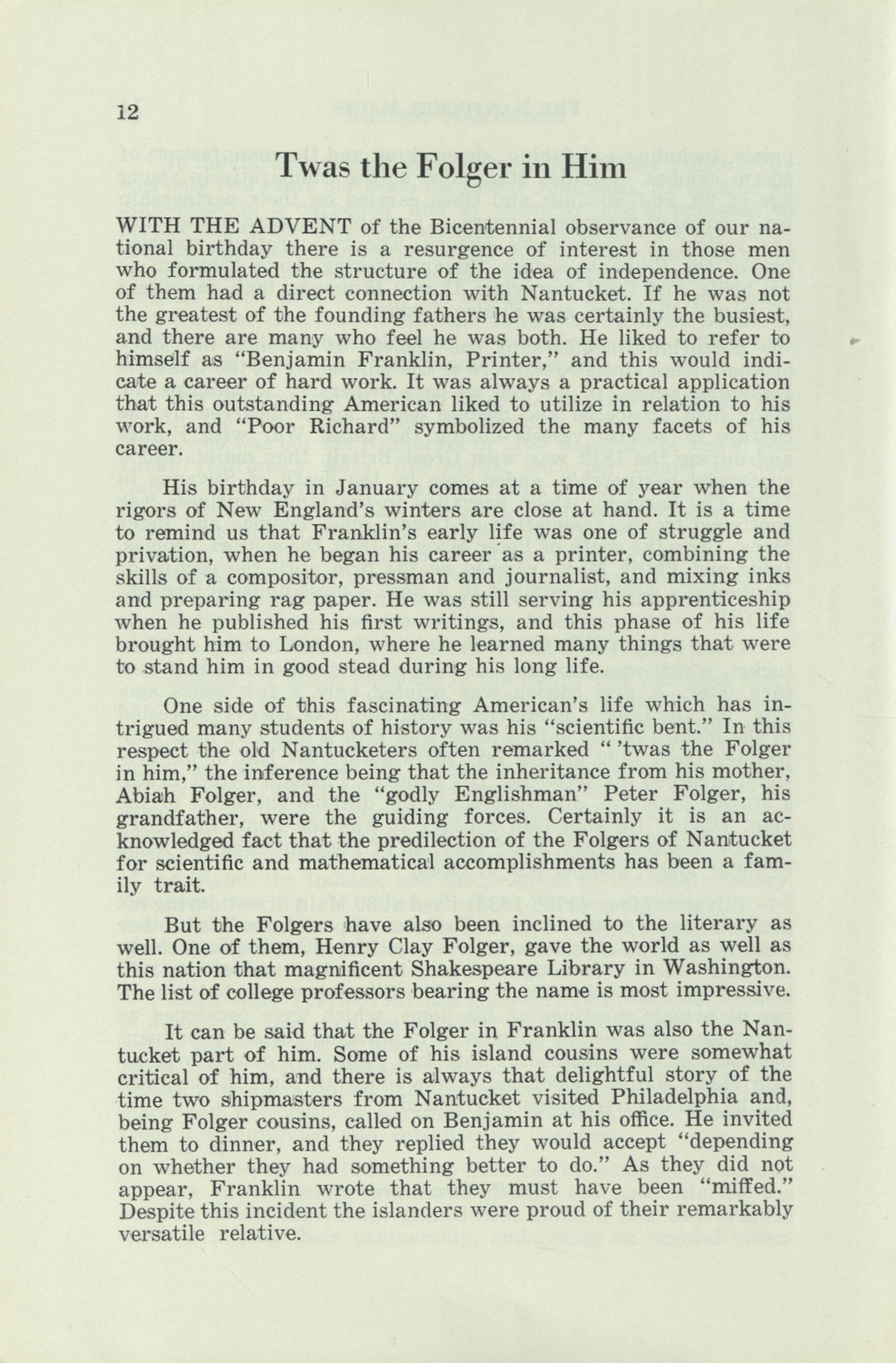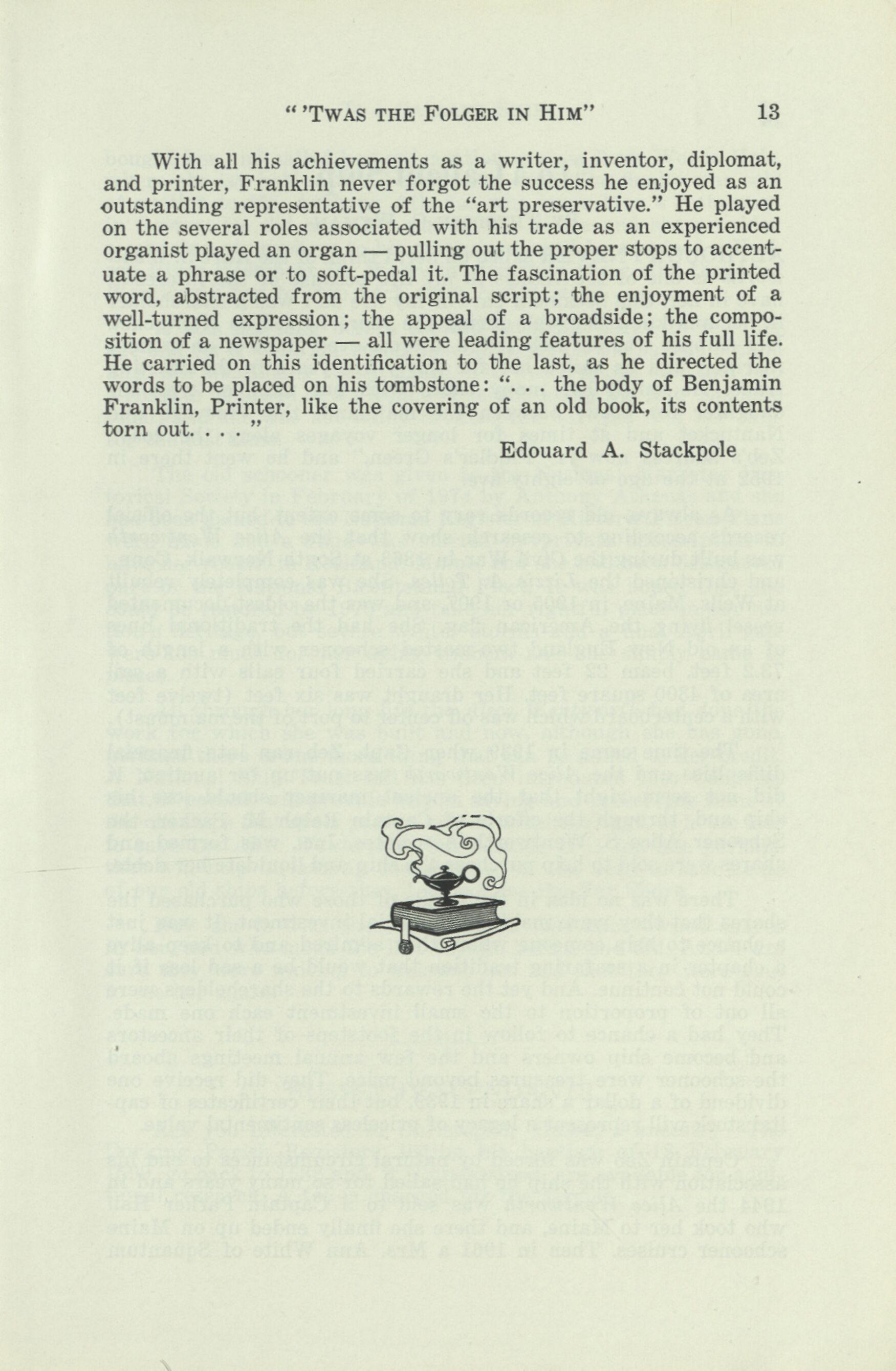
3 minute read
" 'Twas the Folger in Him," by E. A. Stackpole
12
Twas the Folger in Him
WITH THE ADVENT of the Bicentennial observance of our national birthday there is a resurgence of interest in those men who formulated the structure of the idea of independence. One of them had a direct connection with Nantucket. If he was not the greatest of the founding fathers he was certainly the busiest, and there are many who feel he was both. He liked to refer to himself as "Benjamin Franklin, Printer," and this would indicate a career of hard work. It was always a practical application that this outstanding American liked to utilize in relation to his work, and "Poor Richard" symbolized the many facets of his career.
His birthday in January comes at a time of year when the rigors of New England's winters are close at hand. It is a time to remind us that Franklin's early life was one of struggle and privation, when he began his career as a printer, combining the skills of a compositor, pressman and journalist, and mixing inks and preparing rag paper. He was still serving his apprenticeship when he published his first writings, and this phase of his life brought him to London, where he learned many things that were to stand him in good stead during his long life.
One side of this fascinating American's life which has intrigued many students of history was his "scientific bent." In this respect the old Nantucketers often remarked " 'twas the Folger in him," the inference being that the inheritance from his mother, Abiah Folger, and the "godly Englishman" Peter Folger, his grandfather, were the guiding forces. Certainly it is an acknowledged fact that the predilection of the Folgers of Nantucket for scientific and mathematical accomplishments has been a family trait.
But the Folgers have also been inclined to the literary as well. One of them, Henry Clay Folger, gave the world as well as this nation that magnificent Shakespeare Library in Washington. The list of college professors bearing the name is most impressive.
It can be said that the Folger in Franklin was also the Nantucket part of him. Some of his island cousins were somewhat critical of him, and there is always that delightful story of the time two shipmasters from Nantucket visited Philadelphia and, being Folger cousins, called on Benjamin at his office. He invited them to dinner, and they replied they would accept "depending on whether they had something better to do." As they did not appear, Franklin wrote that they must have been "miffed." Despite this incident the islanders were proud of their remarkably versatile relative.
" 'TWAS THE FOLGER IN HIM" 13
With all his achievements as a writer, inventor, diplomat, and printer, Franklin never forgot the success he enjoyed as an outstanding representative of the "art preservative." He played on the several roles associated with his trade as an experienced organist played an organ — pulling out the proper stops to accentuate a phrase or to soft-pedal it. The fascination of the printed word, abstracted from the original script; the enjoyment of a well-turned expression; the appeal of a broadside; the composition of a newspaper — all were leading features of his full life. He carried on this identification to the last, as he directed the words to be placed on his tombstone: ". . . the body of Benjamin Franklin, Printer, like the covering of an old book, its contents t o r n o u t . . . . "
Edouard A. Stackpole











